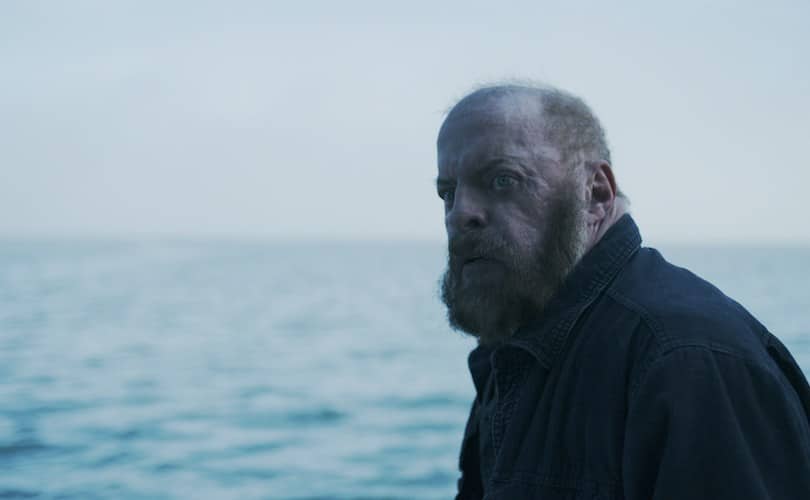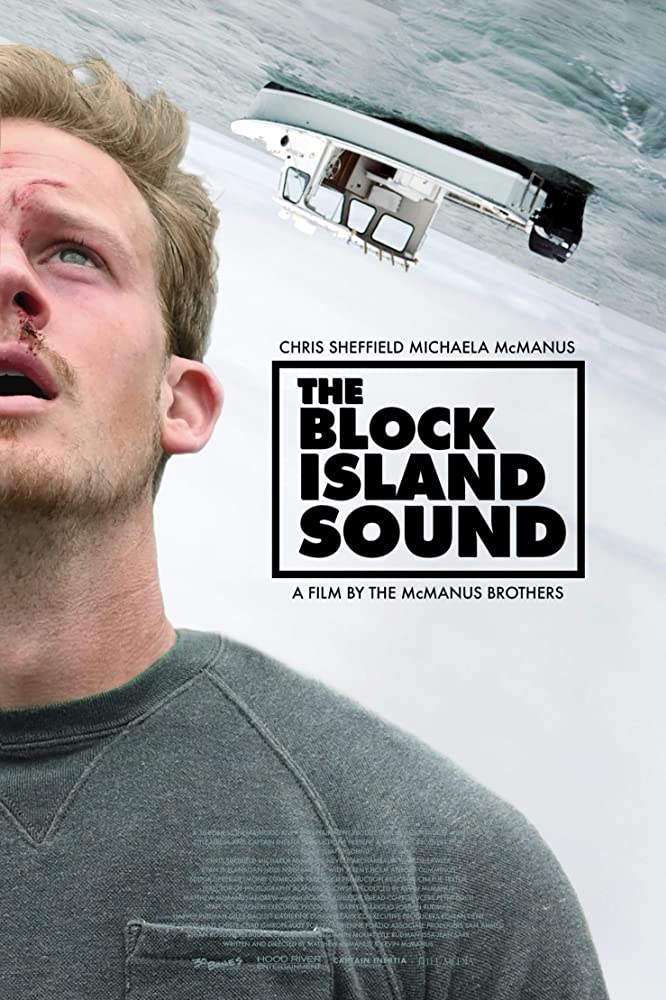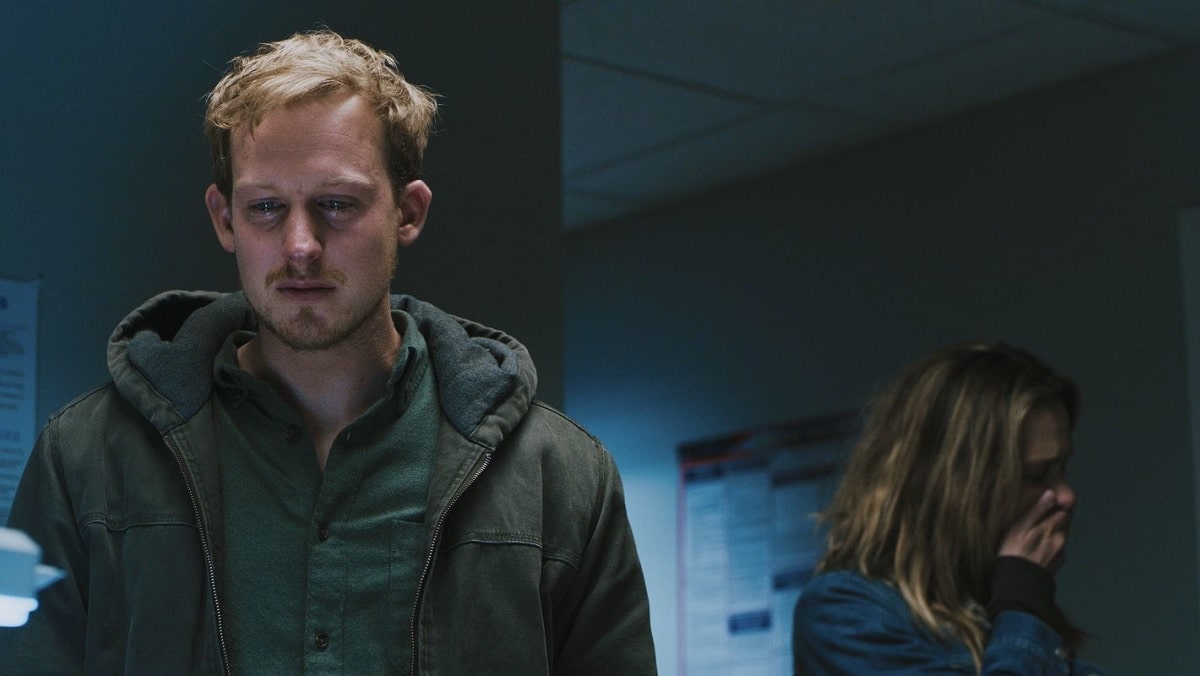
A boat drifts, its lone crewman (Neville Archambault) coming to and shocked by the disarray on board. A horrific, guttural sound attracts his attention…this all takes place within the first few moments of The Block Island Sound, a neat, often inventive horror which splices a kind of eco-horror with something altogether more supernatural, though it never quite gives up its secrets.
Back onshore, we are introduced to the boatman’s son: Harry (Chris Sheffield) is hanging out in a bar with his friends, giving conspiracy theorist pal Dale a ride home when their car strikes a bird, which they watch, flailing on the windscreen. You get the sense that this is the shape of things to come. Back at the house, his father is alive and well but acting strangely, zoning out from time to time and seemingly not in control of his actions when undergoing this experience. Harry puts it down to sleepwalking, but he doesn’t seem convinced by it, and his father’s new tendency to take his boat out in the middle of the night is alarming.
Meanwhile, Harry’s sister Audry (Michaela McManus) her partner and young daughter are making a rare visit home because her role as a marine biologist is of relevance in a part of the world where tonnes of fish have started to wash up, dead. It’s an awkward reunion – Harry is a kind of manchild writ large, always on the verge of losing his temper – and she is very alarmed by her father’s behaviour. When he disappears altogether, Harry will not accept it and goes looking for him; soon he is suffering from the same mysterious symptoms, hearing the same inexplicable noise. What is this?

The Block Island Sound strikes a balance between the kind of eco-horror of The Bay (2012) and something else; the raucous sound which afflicts father and son does make it clear, though, that there is something otherworldly going on (the mention of a certain American city might also put you in mind of a particular kind of horror, though that is never nailed down nor alluded to further). You would hope in a film which begins this way that the soundscape elements would be well-developed and that is the case; from the mysterious ‘noise’ itself to the Paul Koch score, the film sounds fantastic, incredibly eerie and ominous. There are some heavily-signposted scenes – one of which, Audry’s justification to her daughter for the cruelties of her role – is handed back to the audience in the film’s later scenes, but it’s a ‘reveal’ which works. Elsewhere – the allusions to mind control, conspiracy, the dying bird – the symbolism is pretty straightforward.
Whilst there is a lull around the middle of the film, as Harry begins to dominate proceedings, his journey towards understanding unfolding slowly – The Block Island Sound more than rewards attention, with its good, inventive moments and a genuine, unsettling thread of horror which holds things together. The use of amnesia is well-handled, and the expanses of the sea itself – shown as containing some unknown, malevolent force – works well on screen. The moments of snappier horror are very unsettling, because they are used sparingly. Exposition is held back – the film doesn’t speak all its truths – and it ends in a clever final moment. A well-realised, inventive piece of work, The Block Island Sound is a nicely handled piece of storytelling.
The Block Island Sound premiered at the Fantasia Film Festival 2020.
